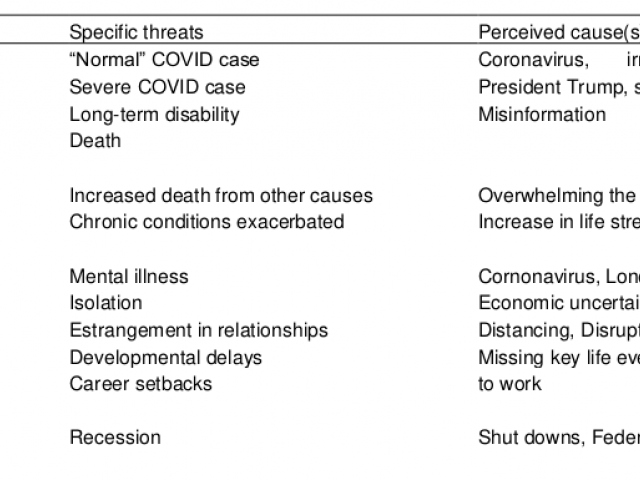
COVID-19 has killed hundreds of thousands, constituting a major global crisis. Laypeople bear a large burden of responsibility for perceiving risks associated with COVID-19 and taking action to manage risks in their everyday lives, yet epidemic-related information is characterized by uncertainty and ambiguity. People perceive risks based on partial, changing information. We draw on crisis informatics research to examine the multidimensional risks people perceive in relation to the COVID-19 pandemic, the information sources that inform perceptions of COVID-19 risks, and the challenges that people have in getting the information they need to understand risks, using qualitative interviews with individuals across the United States. Participants describe multiple COVID-19 threats including illness, secondary health conditions, economic, socio-behavioral, and institutional risks. We further uncover how people draw on multiple information sources from technological infrastructures, people, and spaces to inform the dimensions of their risk perceptions, uncovering deep challenges to acquiring needed risk information.
* The first two authors are co-first-authors.
Pine, K., Lee, M., Whitman, S., Chen, Y., & Henne, K. (2021). Making sense of risk information amidst uncertainty: Individuals' perceived risks associated with the COVID-19 pandemic. Proceedings of the 2021 CHI Conference on Human Factors in Computing System. pp. 1-15.